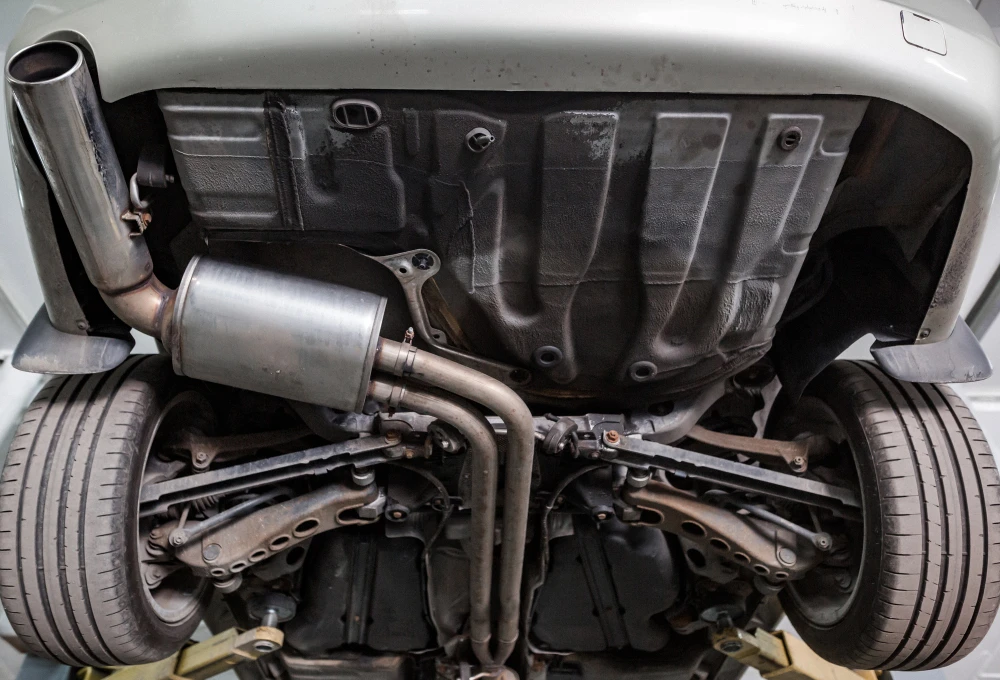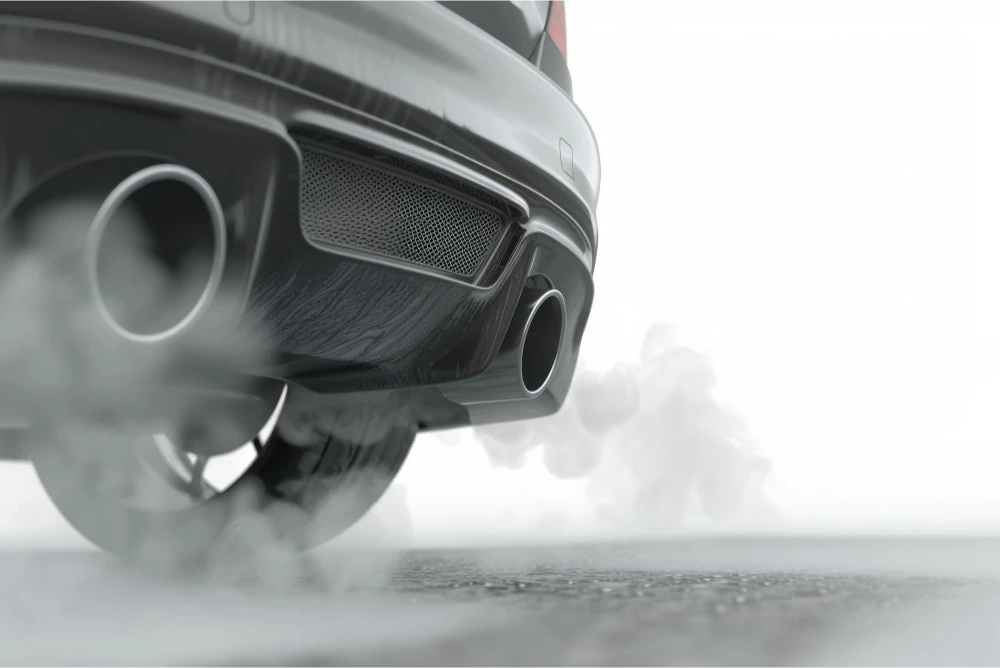Everyone knows that a broken suspension or a faulty transmission can be detrimental to a car, but how many people are aware of the dangers of exhaust leaks?
Understanding how to prevent exhaust leaks is essential for any car owner. Experienced technicians at our auto repair Houston can identify early signs of exhaust issues and provide effective solutions.
This blog post seeks to explain in detail how one can diagnose, avoid and fix an exhaust leak to keep your car in the best condition possible.
Exhaust leaks can cause a lot of problems, and it is essential to prevent them from occurring in the first place.
Therefore, preventing exhaust leaks is a puzzle that involves prevention, routine checkups, and being conscious of certain driving conditions.
If you’re searching for ‘auto repair near me,’ we’re here to help — schedule your service today.
What Do You Mean By Exhaust Leak?

An exhaust leak refers to a situation where there is a breach or hole in the exhaust system of a vehicle, allowing exhaust gases to escape before they reach the tailpipe.
This can occur anywhere along the exhaust system, including the exhaust manifold, catalytic converter, muffler, or exhaust pipes.
Such leaks can result from corrosion, physical damage, or faulty components, and they can lead to various issues, including reduced engine performance, increased noise levels, and potentially harmful gases entering the passenger cabin.
An exhaust leak can also negatively impact fuel efficiency and contribute to environmental pollution, making it crucial to address these issues promptly. To avoid this issue, you need to stay on top of the exhaust system service.
What are Some Causes Behind Exhaust Leaks
Exhaust leaks can occur for several reasons, ranging from natural wear and tear to external damage. Here are some common causes:
Corrosion:
Over time, moisture and road salt can cause rust to develop on the exhaust system components, leading to holes and leaks.
Physical Damage:
Debris from the road or accidents can physically damage the exhaust pipes, causing cracks or holes.
Loose Connections:
The exhaust system comprises multiple components connected by bolts and gaskets. Over time, these connections can become loose or damaged, leading to leaks.
Faulty Components:
Sometimes, individual components like the catalytic converter or muffler may fail, causing leaks.
What Signs You Should Look Out for Exhaust Leaks?
Detecting an exhaust leak early can prevent more significant issues down the line. Here are some signs to look out for:
Unusual Noises:
A hissing or tapping noise when the engine is running can indicate an exhaust leak. The noise is often more pronounced during acceleration.
Reduced Fuel Efficiency:
If you notice a drop in your car’s fuel efficiency, it could be due to an exhaust leak affecting the engine’s performance.
Strong Odors:
A noticeable smell of exhaust fumes inside the vehicle is a serious sign of an exhaust leak, as it indicates harmful gases are entering the cabin.
Vibrations:
Unusual vibrations, especially when idling, can indicate a problem with the exhaust system.
Check Engine Light:
While a check engine light can signify many issues, it could also indicate an exhaust leak.
Tips to Prevent Exhaust Leaks
Exhaust leaks can cause a lot of problems, and it is essential to prevent them from occurring in the first place.
The issue of preventing exhaust leaks is therefore a puzzle of prevention and routine checkups as well as being conscious of certain driving conditions.
1. Regular Inspections
Regular checkups are important as they help identify any signs of exhaust leakage.
Take the vehicle to a reputable garage for a standard check up that includes the manifold, pipes, catalytic converter and the muffler at least once every three months. Check for signs of corrosion, poor contact connections or physical abuse.
2. Avoid Short Trips
Short journeys do not produce much heat which is required to vaporize the water in the exhaust pipe and thus eliminate the chances of rusting. If possible, do several errands at one time so that your car warms up and reaches its optimal operating temperature because moisture will evaporate at this point.
3. Drive Carefully
Some of the exhaust systems are fragile, and therefore, the vehicles should not be driven on roads with potholes or any material that may cause harm to the system.
As much as this may not always be feasible, a careful inspection of road surfaces can greatly help in the protection of the exhaust system.
4. Use High-Quality Parts
When repairing or replacing any part of the exhaust system, it is advisable to go with quality pieces.
Some people prefer buying cheap products, but this is not always the best thing to do since they end up getting spoiled quickly, and one has to spend a lot of money taking them for repairs.
5. Keep the Underbody Clean
Washing your car, including the underbody, on a regular basis can also minimize the build-up of salt and grime which cause rusting. It is particularly critical in regions that experience severe winters and which have to use salt on the roads.
Final Thoughts: Keep Your Vehicle Safe and Efficient
Maintaining a well-functioning exhaust system is crucial for your vehicle’s safety, performance, and environmental impact.
By taking proactive steps to prevent exhaust leaks, you can ensure a smoother and safer driving experience.
If you suspect an exhaust leak or need any repairs, visit Eric’s Car Care. Our experienced professionals are equipped to handle all your exhaust system needs, ensuring your car runs efficiently and safely. So, reach us at 713-667-9293 and book your appointment.

